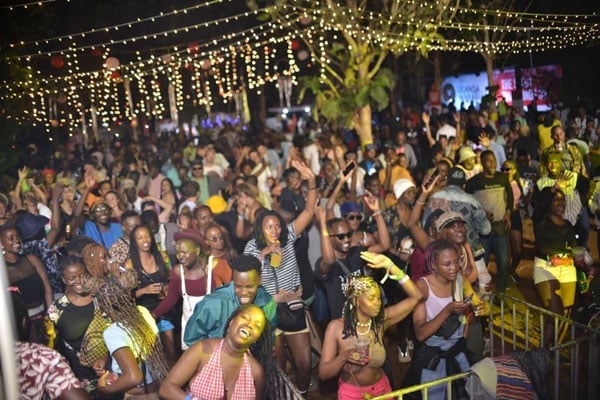Prime
You can try but the truth is nobody can stop Nyege

Author, Benjamin Rukwengye. PHOTO/FILE.
What you need to know:
- Mostly, you don’t impose or try to be condescending and self-righteous. That might have worked in the past but it certainly won’t for this generation.
It is the aftermath of Nyege Nyege, the controversial and divisive festival whose main theme is debauchery. Unlike last year when Parliament tried and failed to stop reggae, there weren’t many loud dissenting voices.
The big news was the security advisories by the United States and the British embassies, who warned their nationals of impending terror attacks. Even that was neutered by Uganda’s security forces. Till next year, when moralists face off with those, they don’t consider conformists enough, in this endless struggle for cultural identity. And therein lies the problem.
The shifting nature of context has us in a bind, trying to make sense of who we are. What is African as is, and what isn’t as has been told to us? Across the globe, except for a few enclaves, there is increasing contention between nationalism and globalization. Most of it is a competition over scarce resources, as the world continues to thin at the waistline, suffocating those at the bottom.
An interesting case was shared by a friend from Nepal, that I was speaking to early this week. She wasn’t working because they were in New Year’s festivities. Confusing right? Well, they have 5 different New Year’s celebrations, and one of them is in 2083.
Nepal is located in Southeast Asia and is most famous for being home to 8 of the world’s tallest mountains – including the world-famous Everest. Even more interesting is the fact that it wasn’t colonized, so it retained a lot of its cultural and traditional purities. As a result, globalization and modernity have found a way to co-exist with Nepalese culture instead of supplanting it in the way that colonialism did to most other places, say in Africa. It is the same thing you see with Ethiopia – their calendar says they are in 2016 – which, thanks to never having been colonized, retains a strong sense of self. And that is the context in which Nyege Nyege exists. Is it immoral because it offends our Christian sensibilities? Or is it immoral because it offends our cultural norms? But if we sought to ban it based on religious grounds, how do we account for the irreligious? And if it goes against our culture, which one exactly – considering Uganda’s single identity is built around its multiculturalism.
While Nyege Nyege might be the poster child for this cultural identity crisis that Uganda faces, it isn’t as pervasive as say polygamy is. Many families wouldn’t have to go as far back as three generations to find that polygamy was accepted and in fact, expected. The ubiquity of Christianity and the pretense that comes with it has not necessarily taken it off the menu; only changed the recipe and plating with which it is served. So, it makes sense when Christians and their leaders who are engaged in extramarital relationships, devious business dealings, corruption, and embezzlement, are at the same time the ones who find Nyege Nyege morally repugnant. They can make excuses or justify temptation, the need to get rich and out of a financial squeeze, or whatever because they aren’t busy doing it in the open.
Nyege Nyege’s problem isn’t that it is happening or that it is immoral. Its problem is that it makes no pretenses and revelers go about their business unapologetically live and in HD. Its problem is the fact that it is the climatic exhibition of the raunchiness that already happens at house parties, brunches, in bufunda, and on road trips all year round. The thing is, it is going to get worse. Uganda is urbanizing at a rate faster than the systems can withstand. A significant portion of her population has also immigrated for greener pastures in the Middle East and will be itching for all manner of raunchy freedoms whenever it is that they return. The demographics also don’t look too positive for the moralists. A majority young population in an economy that isn’t too keen to integrate them will find refuge in enjoyments.
So, how do you find the balance? First, you understand the context in which all of these contending viewpoints exist. You acknowledge that even when you might believe yourself to be right, the people on the other side believe the same too. Mostly, you don’t impose or try to be condescending and self-righteous. That might have worked in the past but it certainly won’t for this generation. Ask those who are trying to hire them.
Mr Rukwengye is the founder, Boundless Minds. @Rukwengye




